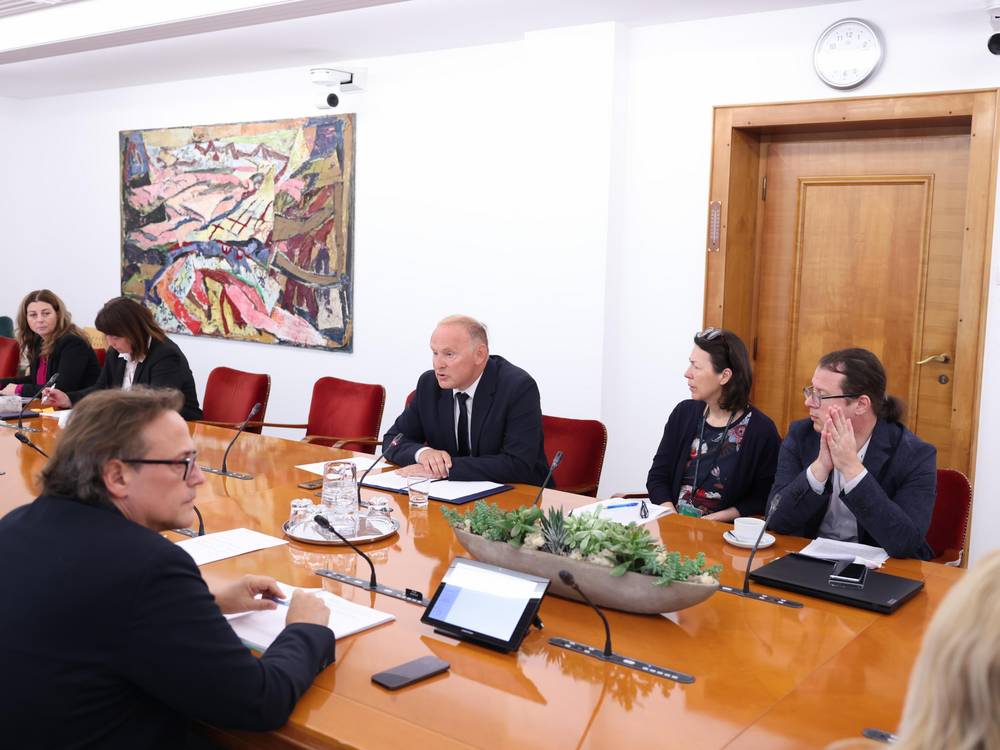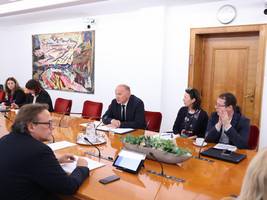The Committee of the National Assembly of the Republic of Slovenia for Labour, Family, Social Affairs and the Disabled today, 15 October 2025, considered the 30th regular annual report of the Human Rights Ombudsman and the report of the National Preventive Mechanism for 2024.
Deputy Ombudsman, Dr. Jože Ruparčič, emphasised that last year the Ombudsman dealt with 6288 cases, of which more than 3100 were complaints, and found 174 violations of human rights and other irregularities. Most violations were related to the principle of good governance, unjustified delays in procedures, the right to social and health security, and the rights of the disabled and children.
"We have again found the most violations in the field of work of the Ministry of Labour, Family, Social Affairs and Equal Opportunities, which shows that this ministry still does not operate according to the principle of good governance and that the situation is not improving," the Deputy Ombudsman warned.
He highlighted the problems in deciding on the right to personal assistance, where the decisions are not adequately reasoned. "In one of the cases, the applicant nevertheless managed to obtain the expert assessment form when, following our advice, he contacted the Information Commissioner. We are satisfied that in the recent period, individuals have succeeded in the procedure of enforcing judicial protection, as the court annulled the decision due to inadequate reasoning. At the same time, we once again draw attention to the need for a systemic and comprehensive regulation of the various forms of assistance available to individuals," the Deputy Ombudsman stressed.
The Human Rights Ombudsman has made 11 new recommendations regarding the rights of persons with disabilities, while also drawing attention to numerous unfulfilled past recommendations. "Last year, we once again paid great attention to the accessibility of the built environment and services for persons with disabilities. On our own initiative, we addressed the issue of accessibility of government and ministry buildings. One of our main findings was that people with sensory disabilities are less well-provided for than people with mobility disabilities. Based on the findings, we proposed that the government form a working group to ensure the accessibility of government and ministry buildings, and to include representatives of non-governmental organisations of people with sensory and mobility disabilities and the Urban Planning Institute of the Republic of Slovenia, which will propose concrete solutions," said Deputy Ombudsman Dr. Ruparčič.
In relation to the elderly, he pointed out the alarming staffing situation in retirement homes, empty beds, and the phenomenon of loneliness, which must be systematically addressed. The Ombudsman proposes the establishment of a network of trustees for the elderly, who would be available in cases of distress, violence, or neglect. In the area of children's rights, he welcomed the amendments to the Primary School Act, which regulate distance learning and the use of electronic devices, and pointed out the problems with the removal of children and the lack of court experts in family matters.
He also presented the MPs with a report by the National Preventive Mechanism (NPM), which visited 72 places of detention last year. Among other things, the NPM found long-term placement of children in crisis centres and overcrowding in secure wards in psychiatric hospitals. "During its visits, it found that people often wait for admission to a secure ward for several months, even several years, even though they no longer need hospital treatment, but treatment in a social welfare institution," the Deputy Ombudsman pointed out.
He added that social rights are equal to all other human rights. "Slovenia is a legal and social state. We call on those responsible to implement and complete the urgent reforms that have been awaiting implementation for years. Social rights are not a privilege, but the foundation of human dignity," said Deputy Ombudsman Dr. Jože Ruparčič.

